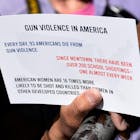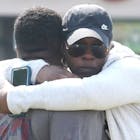
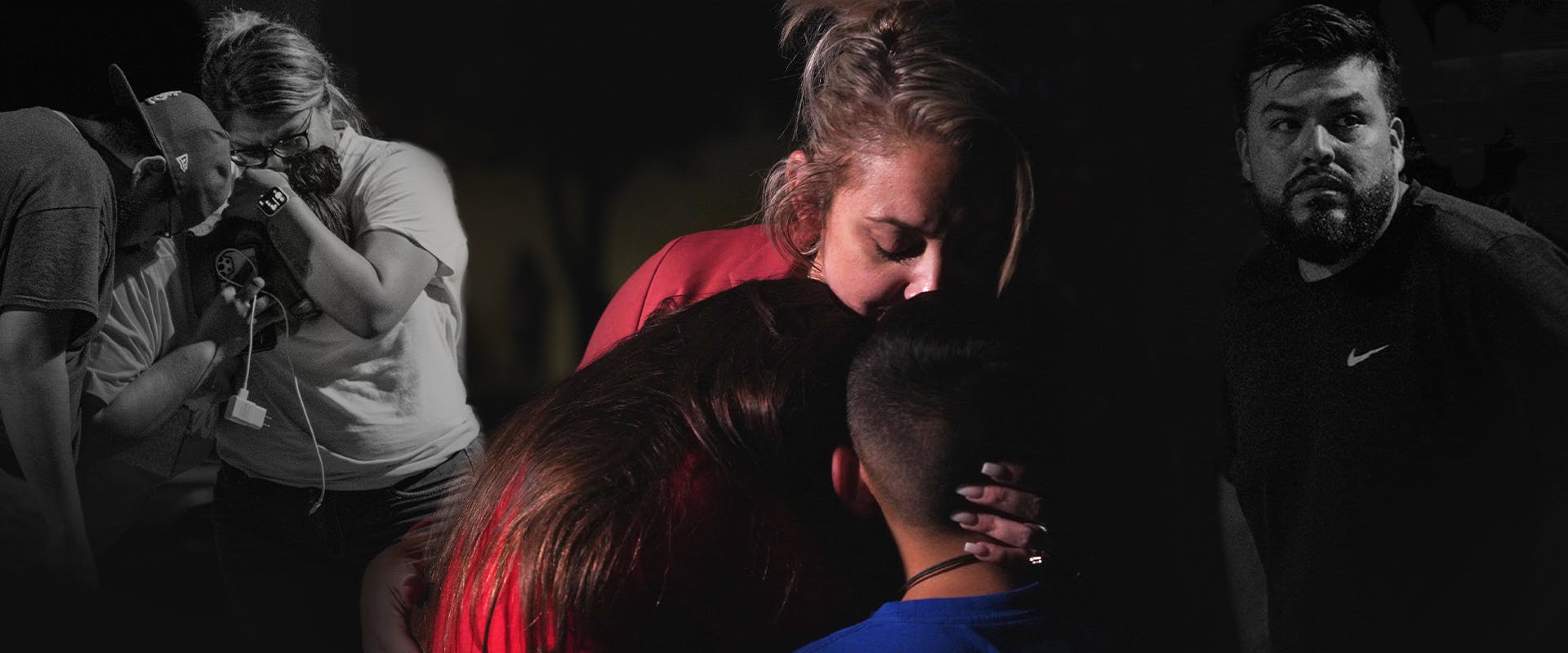
Anger, Apathy and the Evil America Is Willing To Live With
Anger, Apathy and the Evil America Is Willing To Live With
Published Wed, May 25, 2022 at 4:00 PM EDT
Those young faces.
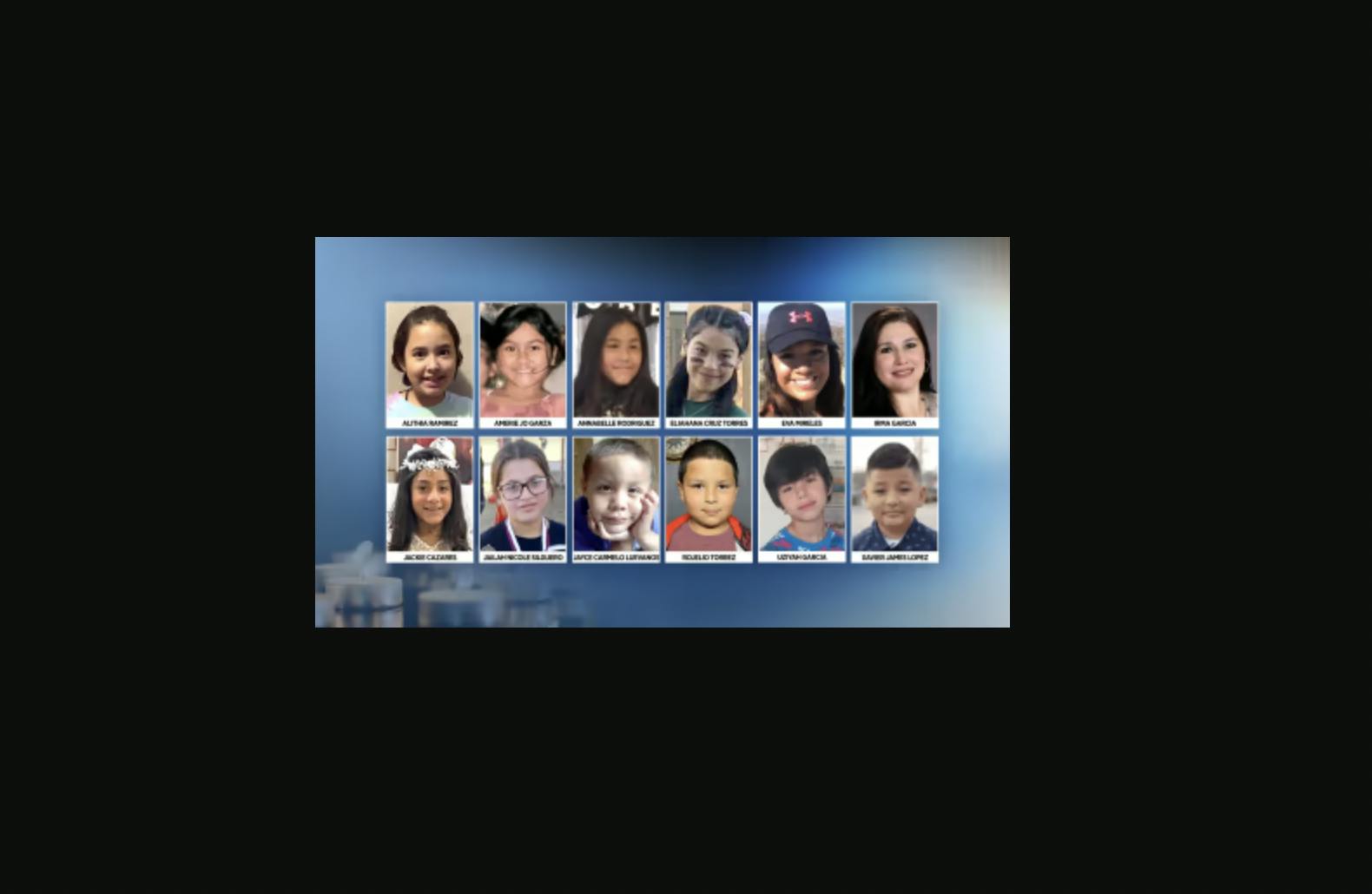

It's heartbreaking to look at those young faces that stare back at you. As photos circulate of the children who lost their lives in a senseless, horrific Tuesday of violence in Texas, it's impossible to not feel anguish for the families who have been torn apart. An 18-year old shooter showed up at Irma Garcia's fourth grade class at Robb Elementary School in the town of Uvalde and destroyed lives. 21 people—19 children and two teachers—were killed in the shooting. Additionally, the gunman, who is also dead, reportedly shot his grandmother at home before driving to the elementary school.
Distressingly, these kinds of tragedies unfold at an increasingly high rate: according to The Gun Violence Archive, the United States has already experienced 213 mass shootings since January 2022. Thats two hundred and thirteen such attacks in just 21 weeks. In five months. Just eleven days before Uvalde, another 18 year-old gunman killed ten people at Tops Friendly Market in Buffalo, New York. That shooter has been identified as a white supremacist, who reportedly drove three and a half miles from Conklin, N.Y. to execute his plan in a predominantly Black area.
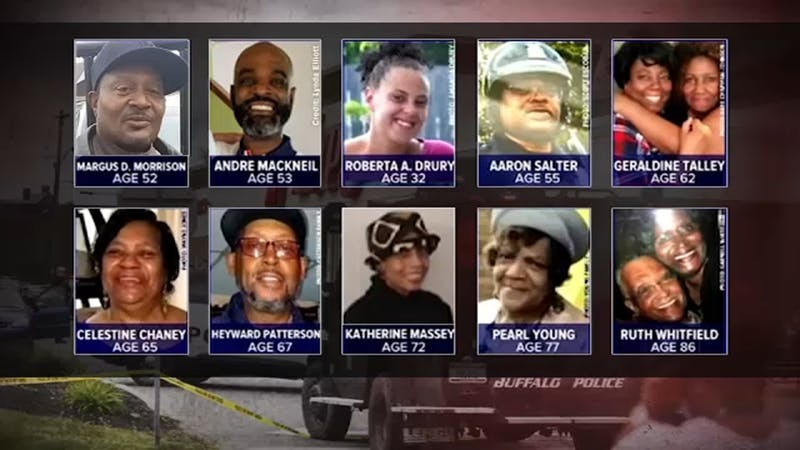
"He looked like he was in the Army," Shonnell Harris, a witness to the Tops grocery attack, said to The Buffalo News. "He stopped, shot again. Stopped, and started shooting again." Another Buffalo survivor, Jennifer Tookes, recounted the horror of the two-minute shooting spree. "You could hear him coming toward the back of the store," she told NBC News. "I was just praying and trying to get out. That's all I could do."
In Uvalde, grief counselors are on-hand at Robb Elementary, which was winding down the year and close to summer break, and around the stunned community. Watching the clips of devastated families and friends and neighbors, having witnessed it all just days earlier, it's the worst kind of American cycle. It trends, then fades, and soon it happens again, shocking us back into momentary attention. Online, every day, we seem to be inundated with so much pain and suffering, of both the micro and macro variety, that one understands how we could get to this numbed new normal. You can't help but acknowledge a certain level of apathetic societal detachment when a movie star's faux pas award show slap or a Hollywood couple's ugly divorce can dominate the news cycle longer than a mass shooting at a neighborhood supermarket did.
It's hard not to shudder at how desensitized we've become to this kind of staggering violence.
DROP YOUR EMAIL
TO STAY IN THE KNOW
But the brutal killing of almost two dozen schoolchildren, not even two weeks after Black grocery shoppers were executed in Buffalo, can't only cause our collective consciousness to ache in despair. Uvalde-born star Matthew McConaughey shared his thoughts on Twitter, as he grieved for what has taken place in his hometown.
"The true call to action now," tweeted the actor. "Is for every American to take a longer and deeper look in the mirror, and ask ourselves: 'What is it that we truly value? How do we repair the problem? What small sacrifices can we individually take today, to preserve a healthier and safer nation, state and neighborhood tomorrow?"
Letting kids die every Day to stay in office. I call it like i see it.
— Luther Luke Campbell (@unclelukereal1) May 25, 2022
When songs and movies are deemed offensive, when someone decides that artists and entertainers have gone too far, swift and stringent rules have been put in place to regulate, limit and censor who could say what and what could be heard by whom. If one were to judge by legislative and civic reactions, it seems that so many of our elected officials have decided that a song about guns is more detrimental to America's youth than guns themselves. In the case of popular music, we move when there is fear about who is listening and we move in such a way that ensures indictment against the purveyors of that which is deemed detrimental. But an audio file has never killed anyone. It would seem that if we're so afraid of what the content can do to troubled people, we should be at least as afraid of what troubled people can do with militarized weaponry.
But when we can see and measure the mortal cost of loose access and ready-made indoctrination online, how is this country going to respond? When is that toll just too damned high?
"The Second Amendment did not come down from Sinai," tweeted Cardinal Blase J. Cupich, the archbishop of Chicago. "The right to bear arms will never be more important than human life. Our children have rights too. And our elected officials have a moral duty to protect them."
The cardinal also pointed out that the expired federal ban on various rifles helped prevent mass shootings.
"As I reflect on this latest American massacre, I keep returning to the questions: Who are we as a nation if we do not act to protect our children? What do we love more: our instruments of death or our future?" Cupich asked.
The aftermath of these atrocities is all-too-predictable: indictments from politicians with incentivized positions; empty words of condolence and empathy; sloganeering via social media; and yes, hand-wringing via op-eds like this one. It's all so infuriatingly impotent; the regularity of these shootings speaks to a societal problem that we will continue to downplay. America has decided that it can live with this. It has decided that this kind of evil is just the price of doing business; we are more than willing to sacrifice our most precious and sacred gifts for the right to never change.
*editor's note: This post originally indicated that the shooting took place in Eva Mireles' classroom and that the shooter killed his grandmother prior to driving to the school. It has been updated to correctly state that the violence occurred in Irma Garcia's classroom; and the shooter's grandmother was shot. As of press time, she remains in critical condition.
